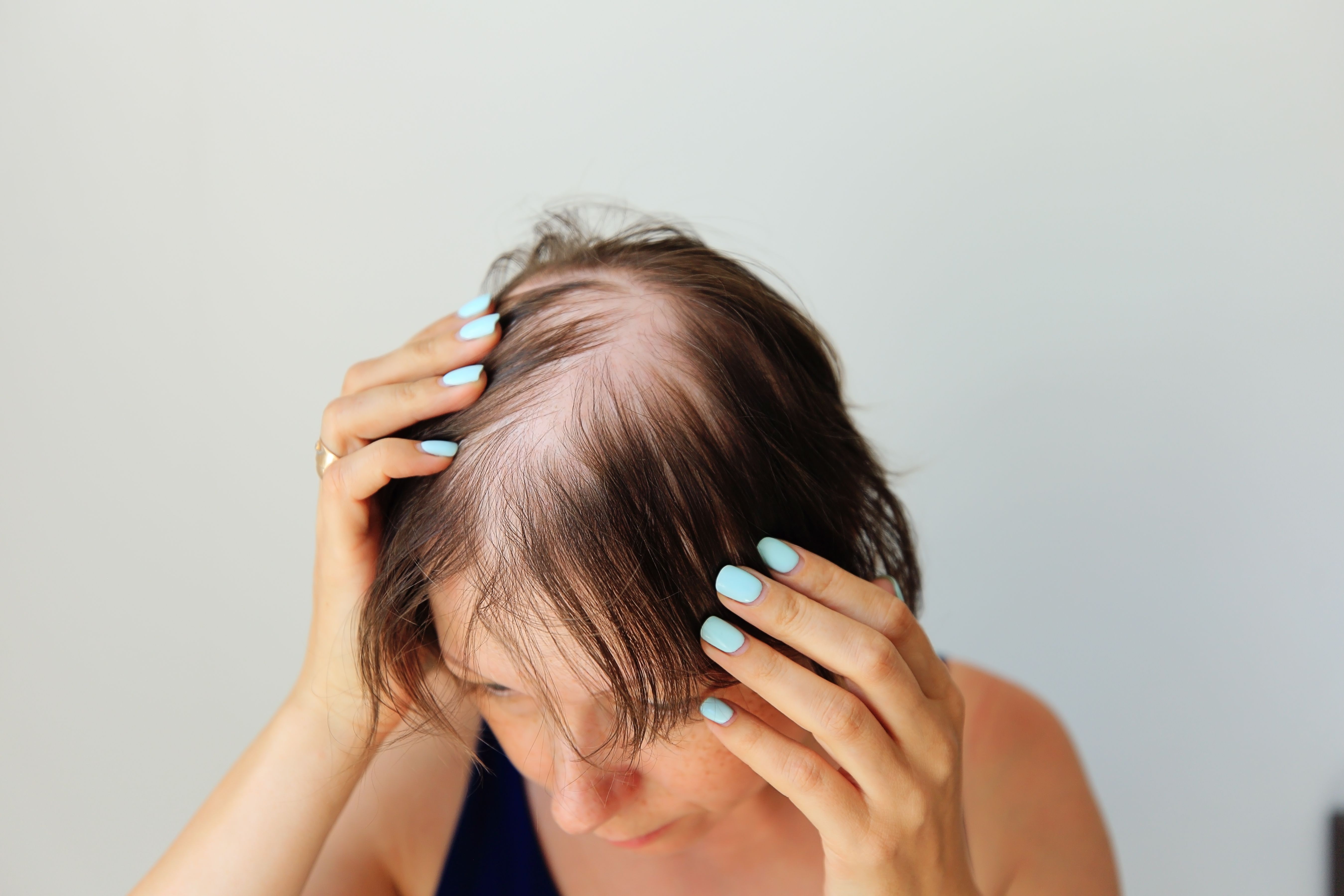- Case-Based Roundtable
- General Dermatology
- Eczema
- Chronic Hand Eczema
- Alopecia
- Aesthetics
- Vitiligo
- COVID-19
- Actinic Keratosis
- Precision Medicine and Biologics
- Rare Disease
- Wound Care
- Rosacea
- Psoriasis
- Psoriatic Arthritis
- Atopic Dermatitis
- Melasma
- NP and PA
- Skin Cancer
- Hidradenitis Suppurativa
- Drug Watch
- Pigmentary Disorders
- Acne
- Pediatric Dermatology
- Practice Management
- Prurigo Nodularis
- Buy-and-Bill
News
Article
Diving Into Deuruxolitinib Data With Natasha Mesinkovska, MD, PhD
The investigator in the clinical development program for deuruxolitinib shared data, patient populations to consider, and more in a recent interview.
The recent approval of deuruxolitinib (Leqselvi; Sun Pharma) for the treatment of severe alopecia areata has offered a new solution to patients with hair loss, impacting their psychosocial health and daily routines.1 In an interview with Dermatology Times, Natasha Mesinkovska, MD, PhD, associate professor and vice chair for clinical research of dermatology at the University of California, Irvine, was an investigator in the clinical development program for deuruxolitinib. Mesinkovska’s interest in the treatment dates back to her tenure as chief scientific officer for the National Alopecia Areata Foundation from 2015 to 2022.
Key Findings From Clinical Trials
Mesinkovska highlighted the pivotal trials that led to the approval of deuruxolitinib. "Deuruxolitinib underwent 2 multicenter, randomized, double-blind, placebo-controlled phase 3 trials, THRIVE-AA1 (NCT04518995) and THRIVE-AA2 (NCT04797650). These trials included a total of 1220 patients with alopecia areata, all of whom had lost at least 50% of their scalp hair," she explained.2
She ran through notable results leading to the FDA’s approval. "At 24 weeks, more than 30% of the patients achieved 80% or more scalp coverage. This is significant because, per FDA guidelines, the medication must regrow almost all of the scalp hair—80%—to be considered effective. Achieving this in 30% of patients within 24 weeks is a very significant outcome for alopecia areata," Mesinkovska noted.
Mechanism of Action and Differentiation
Discussing the mechanism of action, Mesinkovska described how deuruxolitinib works. "Deuruxolitinib is a member of the JAK inhibitor family, which has revolutionized the treatment of chronic inflammatory conditions across various body systems. These medications are oral, do not require special storage or syringes, and have shown excellent efficacy with a well-established safety profile," she said.
She further elaborated on how JAK inhibitors, including deuruxolitinib, function. "They interrupt the pathways that lead to inflammation and destruction of the hair in alopecia areata. The condition arises when the body recognizes the hair follicle as foreign and attacks it. By blocking this inflammatory signal, deuruxolitinib allows the hair to regrow."
Managing Adverse Events
Addressing the adverse events observed in clinical trials, Mesinkovska emphasized the medication's tolerability and safety profile. "The most common side effects, observed in about 5% of patients, included headaches (12%), acne (10%), and upper respiratory infections (8%). While there is a box warning associated with JAK inhibitors, including deuruxolitinib, the medication is generally well tolerated," she said.
Patient Monitoring and Safety
When asked about patient populations requiring closer monitoring, Mesinkovska advised, "Although deuruxolitinib is well tolerated, patients with a history of malignancies, smokers, and those with cardiac issues or severe liver or renal impairment should be monitored closely. It’s always prudent to consult specialists when in doubt, ensuring comprehensive care."
Impact on Psychosocial Well-being
Mesinkovska passionately discussed the psychosocial impact of alopecia areata and the potential of deuruxolitinib to transform patient outcomes. "Alopecia areata is not just a cosmetic issue; it significantly affects patients' lives. The average age of onset is in the 30s, a critical period for personal and professional development. Deuruxolitinib offers a chance to regrow hair and, with it, restore confidence and improve quality of life."
Future Research Directions
Although Mesinkovska could not comment on specific future research plans with Sun Pharma, she hinted at ongoing advancements in dermatology. "It's an exciting time with continuous research and developments. Staying informed about the latest findings is crucial for providing the best care for our patients."
Concluding Thoughts
In conclusion, Mesinkovska expressed her enthusiasm for the future of alopecia areata treatment. "Deuruxolitinib offers a promising new option for patients to regrow hair. I'm excited about what lies ahead in the field of alopecia areata," she said.
References
- U.S. FDA approves LEQSELVI™ (deuruxolitinib), an oral jak inhibitor for the treatment of severe alopecia areata. News release. Sun Pharmaceutical Industries Limited. July 26, 2024. Accessed August 2, 2024. https://www.prnewswire.com/news-releases/us-fda--approves-leqselvi-deuruxolitinib-an-oral-jak-inhibitor-for-the-treatment-of-severe-alopecia-areata-302207222.html?tc=eml_cleartime
- King B, Senna M, Mesinkovska N, et al. Efficacy and safety of deuruxolitinib, an oral selective Janus kinase inhibitor, in adults with alopecia areata: results from the Phase 3 randomized, controlled trial (THRIVE-AA1). J Am Acad Dermatol. Published online July 23, 2024. doi:10.1016/j.jaad.2024.06.097






